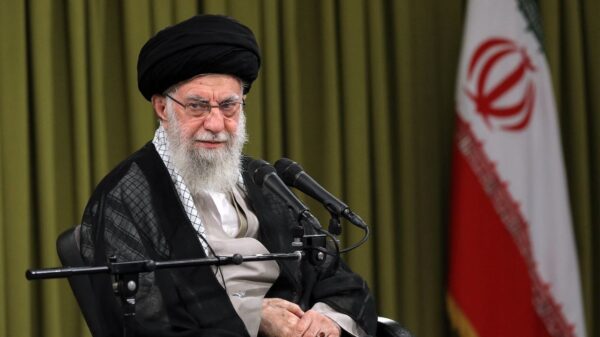U.S. Rep. Ilhan Omar on Wednesday unveiled a pair of resolutions of disapproval intended to prevent multimillion-dollar arms sales to Saudi Arabia and the United Arab Emirates.
The Minnesota Democrat’s measures would block a $582 million sale to upgrade Saudi Arabia’s drone surveillance system and a $85 million sale of radar equipment and rockets to the UAE.The Intercept noted that “the U.S. made high-profile sales to both countries in December, shoring up their offensive capabilities amid the possibility of a regional war and a growing risk of confrontation with Yemen’s Houthis.”
In statements last month announcing the U.S. State Department’s approvals, the Defense Security Cooperation Agency claimed that both sales would “support the foreign policy and national security of the United States.”
Omar argued Wednesday that “it is simply unconscionable to sell weapons to Saudi Arabia while they continue to kill and torture dissidents and support modern-day slavery.”
As The Intercept detailed:
Though Saudi Arabia formally abolished slavery in 1962, its coercive treatment of migrant domestic workers has been described by Human Rights Watch as “clearly” amounting to “slavery.” The Biden administration acknowledges this, describing slavery without using the word “slavery”; the State Department’s most recent report on the country’s human rights practices stating that “forced labor occurred among migrant workers” and that Saudi law “does not prohibit or criminalize all forms of forced or compulsory labor.”
“Saudi Arabia executed over 170 people in the last year alone—including executions just for Twitter posts,” Omar added Wednesday, referring to the social media network recently rebranded as X by its billionaire owner, Elon Musk.
As Common Dreams reported Tuesday, the state-controlled Saudi Press Agency put the 2023 execution number at 170 while a pair of human rights organizations said it is at least 172, continuing a surge seen in recent years under King Salman and his son Crown Prince Mohammed bin Salman, the kingdom’s prime minister and de facto leader.
Human Rights Watch said in August that “on July 10, 2023, the Specialized Criminal Court, Saudi Arabia’s counterterrorism tribunal, convicted Muhammad al-Ghamdi, 54, a retired Saudi teacher, of several criminal offenses related solely to his peaceful expression online. The court sentenced him to death, using his tweets, retweets, and YouTube activity as the evidence against him.”
Omar on Wednesday also slammed the human rights record of the United Arab Emirates, which has been accused of supporting the Rapid Support Forces (RSF), a paramilitary group involved in the current conflict in Sudan.
The New York Times revealed in September that “under the guise of saving refugees,” the UAE “is running an elaborate covert operation” to help the RSF, “supplying powerful weapons and drones, treating injured fighters, and airlifting the most serious cases to one of its military hospitals.”
The congresswoman noted that the UAE has not only “been violating the U.N. arms embargo in Darfur to support the RSF, which the State Department recently determined is committing war crimes and crimes against humanity,” but also “been arming the Ethiopian government, which has been accused of atrocities in Tigray, Amhara, and Oromia.”
A Somali war refugee, Omar has long been a critic of U.S. support for armed conflicts around the world—including Israel’s ongoing assault on the Gaza Strip. In March, she introduced the Stop Arming Human Rights Abusers Act, which “imposes universal human rights and humanitarian conditions on security cooperation with the United States.”
“I am a survivor of civil war, and I understand personally how it terrorizes children around the world,” she said at the time. “I also know the moral authority the United States carries on human rights and international law. We have an opportunity to live up to these values, to ensure that no child lives through violent conflict like I did, and to mean what we say when it comes to championing human rights worldwide.”
This article was originally published in Common Dreams.































































